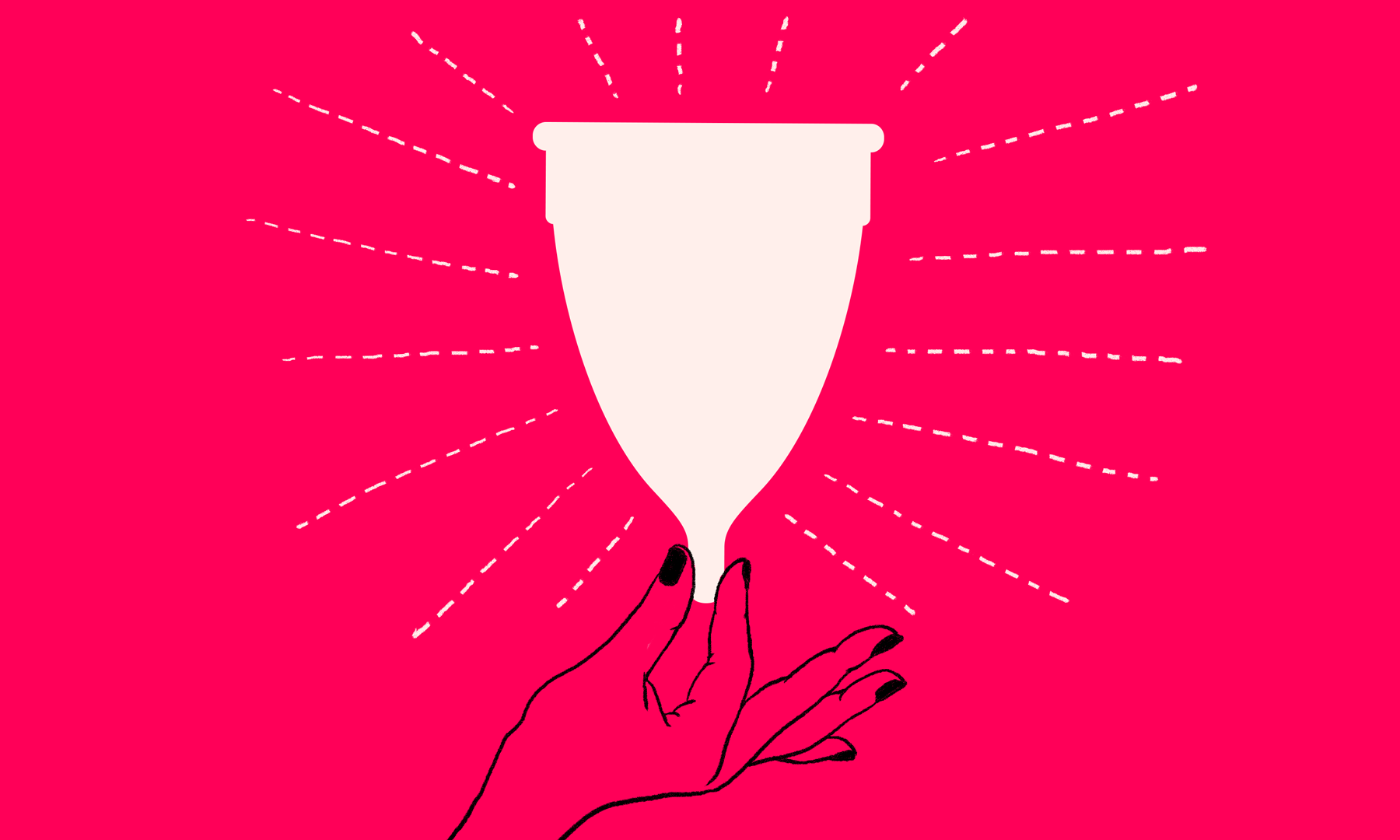Editor’s Note: This month, that is May 2020, FII’s #MoodOfTheMonth is Menstrual Health, where we invite various articles about various experiences that revolve around menstruation or the absence of the same. If you’d like to share your article, email us at pragya@feminisminindia.com.
The idea of using menstrual cups is not something that was presented to a majority of us when we hit puberty. The focus was more on celebrating our capacity to produce babies without really giving us a primer on what was happening to our bodies. This, combined with our utter lack of sex education and guidance, the taboos surrounding sexual and menstrual health and the capitalist sanitary napkin industry; needless to say, our vagina is made into a mystery.
When we don’t have adequate sex education, we don’t have information about our body’s anatomy and safe usage of menstrual products. Growing up, it is a thing of luck if we had a separate session for girls in our school explaining with very minimal details what our period means. Meanwhile the boys are sent off to play. We grow up in a world where a common biological process is stigmatised, where euphemisms like Aunt Flo are a norm and talking about your period out loud is thought as “un-ladylike” or gross and embarrassing. When these topics are off the table and are misrepresented, access to relevant education, choice and proper healthcare is cut off as well. With a majority of women in our country still struggling to have access to basic menstrual products, conversations surrounding them are more important than ever.
Even though menstrual cups have been available for commercial consumption since 1937, confusion and anxiety surrounding them seems to be commonplace. When we grow up learning that we have to shackle our breasts for our own “safety,” we also end up believing that the body and its sexuality is something that needs to be hidden, something that we cannot ask questions about. We just know that our vagina oozes blood monthly and only our 10th Grade textbook, which our Biology teacher tries to avoid as much as possible, tells us a little more.
Menstrual cups become even more daunting when we are not comfortable with our body. A lot of us find it difficult to trust and love our bodies because we are used to the unrealistic beauty standards that the society has imposed on us. We need to know the inside of our vagina well enough so we know how to navigate and ensure that it’s sitting healthy. But for many of us, the vagina is still an enigma.
Menstrual cups become even more daunting when we are not comfortable with our body. A lot of us find it difficult to trust and love our bodies because we are used to the unrealistic beauty standards that the society has imposed on us. We need to know the inside of our vagina well enough so we know how to navigate and ensure that it’s sitting healthy. But for many of us, the vagina is still an enigma.
This can be learnt on the job, but a lot of us have internalised that sex is something that is meant to hurt us while being pleasurable for the man. And often this thought may get carried over to the domain of anxieties around menstrual cups. There is an overwhelming fear that this alien object will also be painful. The very thought of putting something up there while on our period, with all the bleeding, might seem scary. Period blood is something we have been taught to be disgusted by and, in fact, it is so impure that we ourselves are deemed as impure and in conservative households, need to be shunned.
After battling societal demons, when we finally decide to start considering the possible usage of a menstrual cup, we are plagued by dozens of questions which only YouTube can help us with. Does it hurt? Will I out-bleed it? Will I be able to feel it? Does it smell? How long can I go without changing it? Is it hygienic? How exactly does it work? How much will it really help my monthly savings pool? Where do I find it? Does it have sizes? We cannot go to our family gynecologist because she thinks menstrual cups are suitable only for “married women.” This is the same gynecologist who refused to prescribe an ointment for your vaginal infection because nothing can enter the sacred space which is so diligently being “saved.”
Also read: Menstrual Cups Are Great, But Even They Require Resources
Somehow we persevere and order the soft silicon device online and then the next round of anxiety and confusion hits us. This is new territory, the whole experience as well as the inside of your vagina, and the unknown gets to you. You are worried about folding it correctly and removing it despite your extensive research. Inserting it in for the first time is so insanely hard and time-consuming that you give up. Thinking about removing it is so anxiety-inducing that you just decide to go back to sanitary napkins.
You also have this immense fear that somehow the menstrual cup will get lost in your body or you will be unable to pull it out. When you finally get yourself to insert it, no matter how comfortable you are physically, your mind is in a constant flux wondering if you’re leaking, if it’s in correctly, if it’ll give you an infection, if you should check again for the fifth time or if it’s properly sealed and in the right position.
You also have this immense fear that somehow the menstrual cup will get lost in your body or you will be unable to pull it out. When you finally get yourself to insert it, no matter how comfortable you are physically, your mind is in a constant flux wondering if you’re leaking, if it’s in correctly, if it’ll give you an infection, if you should check again for the fifth time or if it’s properly sealed and in the right position.
So many of us start out by wearing a sanitary napkin along with the cup because we have been conditioned into thinking that period stains cannot be seen, no matter what. You’re worried you won’t get a public bathroom at the right time to be able to wash it and re-insert it. Strangely enough, once you’ve finally gotten used to it all, you’re scared of your mother finding out. You know she disapproves of the menstrual cups and you do not want to have an emotionally exhausting fight after everything that you’ve had to go through.
It is suffice to say, after all this, we choose to keep going because once we get used to it, it is one of the most comfortable, healthy and hygienic options for our vagina. We forget we’re on our periods because we don’t have to feel the blood oozing out every time we laugh or sneeze. We finally truly understand our vagina.
Also read: How Menstrual Cups Changed My Life
We get comfortable with our period blood, because it’s not stinky and “dirty” in itself, and we accept this part of ourselves as much as all the others. We finally do not have to worry about staining our clothes or our bed and we can do everything that we want to, all thanks to this tiny little menstrual cup. Of course, it is not an option for everyone and you should not force yourself to do anything that you or your body are not comfortable with. But it helps to know that you are not alone in the struggle!
Featured Image Source: Medium




